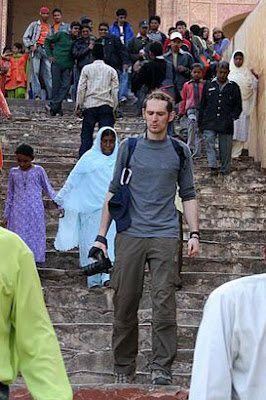Cambodia
The Kingdom of Cambodia is a special country, formerly known as Kampuchea. It witnessed one special civilization, Khmer Empire. A civilization which flourished in the area from the 9th century to the 13th century. The Khmer Empire declined yet remained powerful in the region until the 15th century. The empire's center of power was Angkor, where a series of capitals was constructed during the empire's zenith. Angkor Wat, the most famous and best-preserved religious temple at the site, is a reminder of Cambodia's past as a major regional power.
After the brutality of the 1970s and the 1980s, and the destruction of the cultural, economic, social and political life of Cambodia, it is only in recent years that reconstruction efforts have begun and some political stability has finally returned to Cambodia. Don't know why, but always when i hear Cambodia, a movie "Apocalypse now" springs to my mind... That river. That rain.
Even the first contact with Cambodia is interesting. The border crossing that majority of us are not used. And then the first larger town, Stung Treng. Yep, you can clearly see, that this is completely different country that Laos. A lot of garbage on the streets and extremely bad road. It seems that time has stop in 80s and only now rebuilding begins...
Phnom Penh is a bustling city. But two decades of brutality left also some scars to the city itself. If Vientiene in Laos was busy, this was incredibly alive. And dusty. Tuk-tuk galore. Tout galore. Even though i was there in »a winter«, it was hot and humid...
Siam reap is the center of the tourism. Yep, as Angkor was a center of power a few decades, Angkor is today a tourism headquarters. Incredible number of temples, big, small. Here you can see, how strong the nature is (for example Ta Prohm). Unfortunately, people are just flying in, for day or two, to experience the magic of the khmer. And then they fly away. And just a few kilometers away, on the rim of the Tonle Sap lake and on the floating villages, people are living traditionally, far away from the dollars of the tourism.




0 Comments:
Post a Comment
<< Home